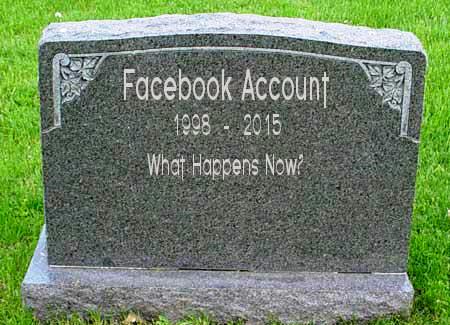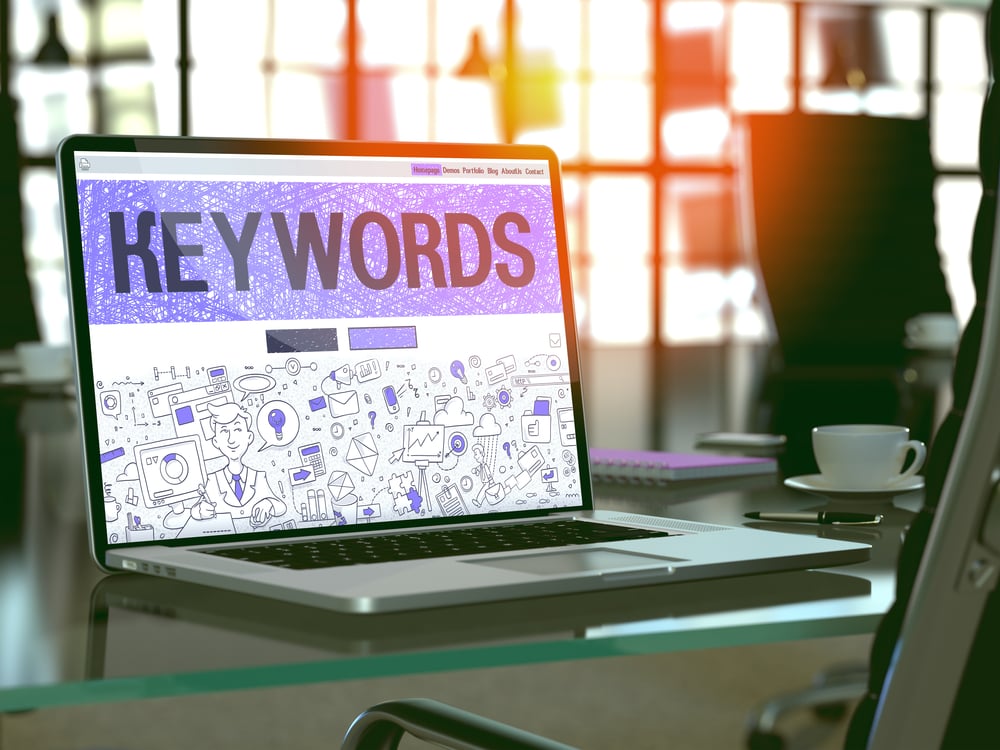Shortly after the first of January, an old friend of mine passed away quite suddenly. My Facebook page exploded with the news, the shock, and the hurt. Many of us posted tributes to him; both on our pages, and on his page for the sake of his family. Fast forward four weeks and imagine how I felt when Facebook posted a notice that it was his birthday, and wouldn’t I like to send him a message.
 This was not the first time I’d had an experience like this, nor is it likely to be the last. With hundreds of people among my social media friends and connections, the inevitability of digital ghosts reaching out to me increases with every day. A gentleman that I once worked for had a wide social media footprint, and when he unexpectedly died five years ago no one gave a thought to how often his smiling face would pop up unexpectedly over the years. The odd thing is that removing him from my social media is quite difficult. As awkward as seeing his picture can be, the thought of deleting him seems at least equally wrong.
This was not the first time I’d had an experience like this, nor is it likely to be the last. With hundreds of people among my social media friends and connections, the inevitability of digital ghosts reaching out to me increases with every day. A gentleman that I once worked for had a wide social media footprint, and when he unexpectedly died five years ago no one gave a thought to how often his smiling face would pop up unexpectedly over the years. The odd thing is that removing him from my social media is quite difficult. As awkward as seeing his picture can be, the thought of deleting him seems at least equally wrong.
Nobody wants to think about this sort of thing, but you probably should know what you and your loved ones are currently facing with the legacy of your social media accounts.
Facebook has now initiated a legacy policy, enabling users to designate a legacy contact who will manage a memorialized version of your account. This person will be allowed to post a memorial message to be pinned to the top of your page, respond to friend requests, and update your cover and profile picture. It is also likely that Facebook will amend the policy in the future, providing other capabilities to the legacy contact.
This is still quite different from deleting the account of someone who is deceased or incapacitated. There are steps which can be taken to delete an account under those circumstances, but Facebook will have to carefully review those requests. Before the legacy policy, they required proof that the request came from a close relative. Families don’t always bother. A recent check of the account belonging to the friend who passed away five years ago reveals that someone who was clearly unaware of his death posted to his wall as recently as last October.
Facebook, of course, isn’t alone in struggling with the murky area of social media legacy. Pinterest never gives out any personal log-in information, and will only delete an account if petitioned by someone who can provide solid documentation of the account holder’s passing, and proof of a familial relationship with the deceased. In other words, your Pinterest account is likely to live forever.
Upon your death Twitter will deactivate your account, so long as certain rather strict conditions are met. According to the Twitter policy ‘a person authorized to act on the behalf of the estate or with a verified immediate family member of the deceased’ can make a request.
If you are making this request on behalf of the deceased, Twitter requires:
- The username of the deceased user’s Twitter account
- A copy of the deceased’s death certificate
- A copy of your government recognized ID (like a military ID, or a driver’s license)
Along with a signed statement including:
- Your first and last name
- Your email address
- Your current contact information
- Your relationship to the deceased user or their estate
- Action requested (e.g., ‘Öplease deactivate the Twitter account’)
- A brief description of the details that evidence this account belongs to the deceased, if the name on the account does not match the name on death certificate.
- A link to an online obituary or a copy of the obituary from a local newspaper (optional)
Again, will many families want to deal with this, with so many other, more important, concerns they may have?
LinkedIn has an interesting policy. To deactivate, they need
- The member’s name and your relationship with them
- Information on the company they worked for
- The email address associated with their account (often the work email)
- A link to their LinkedIn profile
Incidentally, both LinkedIn and Facebook will allow someone else to use your profile name in the future, if they have established that the previous owner is deceased. But, as we have seen, if nothing is done then all your content will remain undisturbed in perpetuity.


